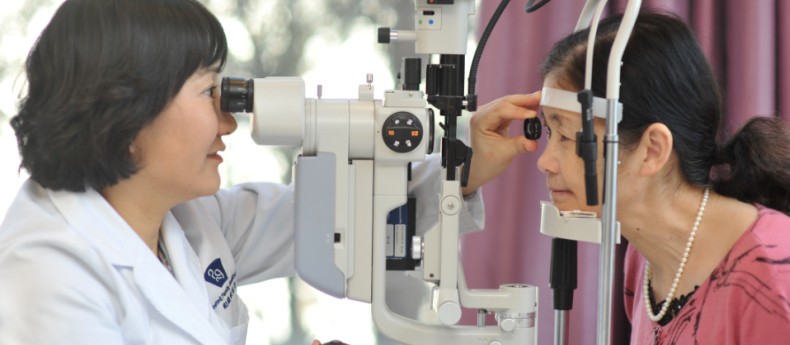
Protecting your eyesight
Preventive care and early detection are crucial not only for protecting your eyes but for maintaining a happy and healthy quality of life. This is especially important with regard to your eyes, because by the time we notice symptoms of many eye diseases irreversible damage has already been done. Getting your eyes checked is therefore crucial to your overall health and well being. Regular eye check-ups are recommended so that eye conditions and diseases can be easily prevented or detected early enough to treat.
There are many conditions that can affect our eyes. Three in particular, if left untreated can cause irreparable damage. These are glaucoma, nearsightedness and strabismus. Let’s have a look at these conditions more closely…
Strabismus
Strabismus (also called squinting eye) occurs when the two eyes do not look in the same direction. As well as affecting a person cosmetically, it also causes loss of stereo vision. If the eyes continue to focus on different images, the brain may begin to ignore one eye.
Strabismus can be either congenital or develop at an older age. Noninvasive treatment is generally tried first, with the use of glasses and eye strengthening exercises. Surgery can then also be used to straighten the eyes. Sometimes strabismus is combined with problems such as ‘lazy eye’. Treating one problem can help resolve the other; however, ‘lazy eye’ can only be treated effectively in children (normally below 12 years of age).
Strabismus surgery can be completed only after correction of vision. If completed early enough stereo vision and coordinated eye movements can be restored. If left untreated, however, the patient may never regain sight in that eye and vision loss may be permanent. The earlier this condition is detected and treatment is started, the better and quicker the improvement will be.
Glaucoma
Glaucoma is a fairly serious disease affecting the nerves behind the eye – the optic nerves. This condition can develop gradually without symptoms. You may not even know you have it until it is too late. For example, some people may not come to see a doctor until they have problems with something as simple as walking across the street. Normally by this stage their visual field has been severely narrowed.
As glaucoma gives very few warnings, regular screenings are necessary to prevent damage. People over the age of 40 are recommended to get not only their vision checked but also their visual field checked (glaucoma screening). This is especially important for people who have high myopia or a family history of glaucoma.
Surgery or medicine can help to protect your eyes from deteriorating further but will not restore your vision or visual field. If left untreated, glaucoma can lead to irreversible loss of visual field known as tunnel vision or worse, blindness. Early intervention is the key to fighting this disease and protecting your vision effectively.
Nearsightedness (Myopia)
Nearsightedness (also called Myopia) occurs when the eye is slightly longer from front to back than normal, causing blurred vision when looking at faraway objects. Nearsightedness is more common nowadays due to the extended use of computers, televisions and video games.
School aged children in particular are recommended to have their eyes checked at least once a year. A type of refractive error called ‘pseudo myopia’ is common in school age children and is caused by too much close-up work such as reading and using computers. If it is detected early enough, eye drops can improve their vision.
There is no way to prevent nearsightedness, but frequent checkups, protecting your eyes from the sun, eating a healthy diet with plenty of vitamin A, using good lighting, and recognizing the symptoms of nearsightedness will help to slow its progress. If left untreated, nearsightedness can lead to eye strain, visual fatigue and headaches. High myopia is also a risk factor for retinal tears and glaucoma. Early detection, however, will help to protect vision from quick deterioration.
How often should I have my eyes checked?
Adults should get their eyes checked at least once every two or three years; more often if they are in the ‘at risk’ category. Children, especially those of school age, should have their eyes checked at least once a year.
Have you gotten a checkup recently? It may be time to call us! At United Family Hospitals Eye Clinic, we have highly qualified staff of doctors ready to help you with all your eye care needs.
Copyright United Family Healthcare 2014 All right reserved - 京卫网审[2014]第1927号 - 京ICP备13017554号-4





